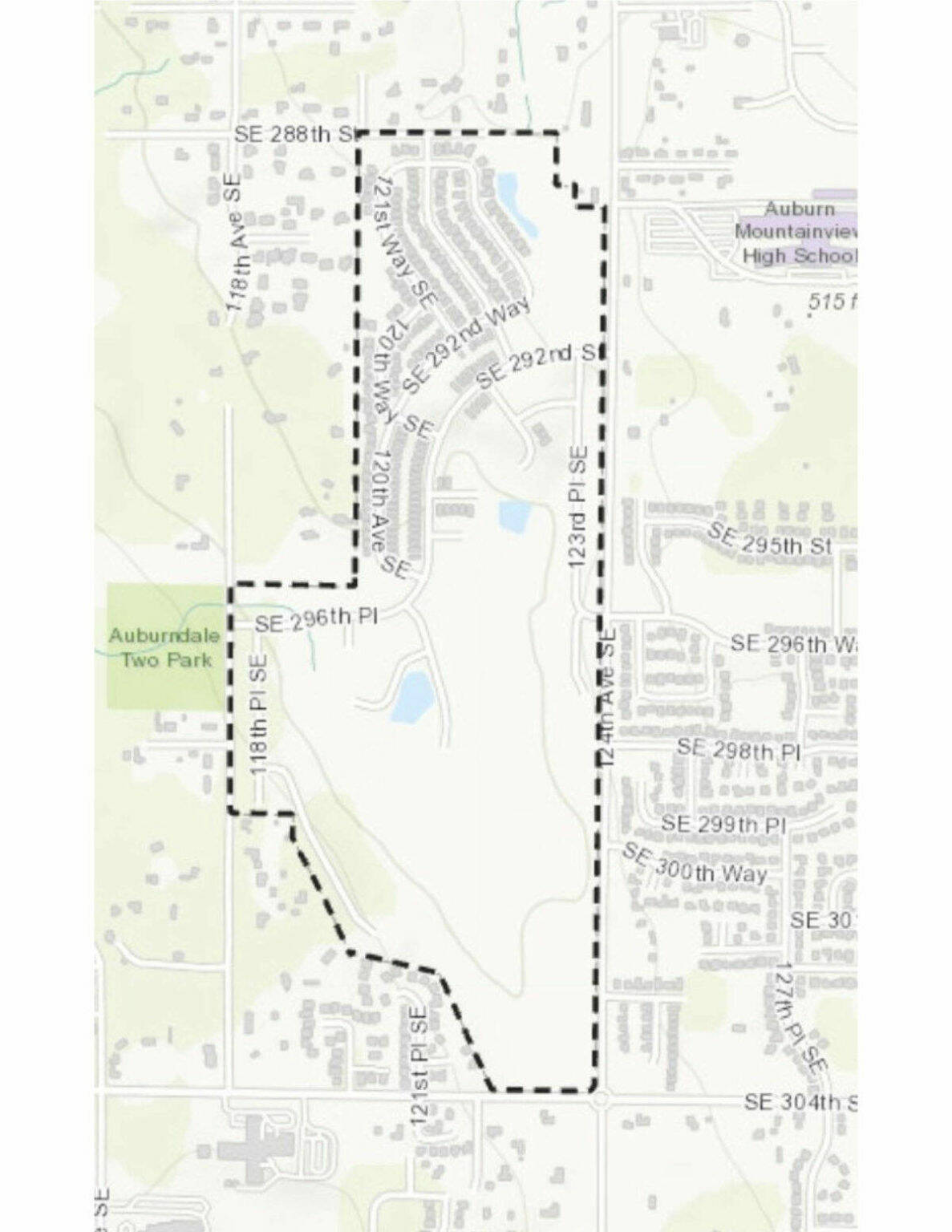The city of Kent rescheduled a public hearing about declaring a section of wetlands surplus within the Bridges neighborhood after staff failed to post public notice boards at the site.
The Bridges is in the Lea Hill area of Auburn/Kent and is generally bound to the east by 124th Avenue SE, on the west by 118th Avenue SE, on the north by SE 288th Street and on the south by SE 304th Street.
Kent and Auburn city councils and staff are considering whether the neighborhood, in the city of Kent limits, should be de-annexed by Kent and annexed by Auburn. The properties that surround Bridges are in the city of Auburn.
The 155 acres is part of a “municipal island” in Kent with 386 homes and about 1,000 residents. It includes 55 acres of open space and a 13-acre lot that allows for commercial, retail and residential use.
Kent is considering surplus of the wetlands to facilitate potential de-annexation of the Bridges neighborhood by the city of Kent to the city of Auburn. While annexations typically transfer ownership of publicly owned tracts to the receiving city, Auburn does not wish to take ownership of these tracts, said Matt Gilbert, Kent’s deputy director of economic and community development, in a Dec. 16 email.
“There is a distinction between declaring property surplus and transferring the property by sale or other means,” Gilbert said. “The surplus hearing is scheduled for the council to declare the property surplus to city needs. Transfer of the property will occur later.”
The public hearing will be at 7 p.m. Jan. 17 during the Kent City Council meeting. The council will consider surplus of the properties. A decision about who would maintain the wetlands and transfer of the properties would occur at a later date. The city will not sell the wetlands.
Bellevue-based Oakpointe Communities is expected to take ownership of the wetlands and maintain those tracts. Oakpointe developed the Bridges neighborhood and is considering building 150 townhouses next to the development once Kent and Auburn determine which city will oversee the land and issue building permits. The wetlands will remain untouched as far as any development.
“An owner’s obligation to maintain wetland areas has both a passive and active aspect,” Gilbert said. “In the passive sense, use of the property is perpetually restricted so that it retains the ecological and aesthetic functions and values of a natural wetland area. These restrictions apply, regardless of who owns it, and permits cannot be issued to develop the property.
“The active element of wetland maintenance involves protecting the area from degradation, which most commonly means monitoring for and cleaning up after illegal dumping. If this, or anything else that degraded the wetland occurs, the property owner will be responsible for curing the deficiency. If they fail to do so, it could become a code enforcement matter.”
Oakpointe has indicated it would be willing to maintain the wetlands, Gilbert said.
“Assuming Oakpointe takes possession of the property it cannot use the property for any other purpose,” Gilbert said. “As owner, it will be obligated to maintain the sensitive area tracts.”
If the council approves to surplus the wetlands, the city won’t be selling the properties, but transferring ownership of them.
“A sale of sensitive areas is not necessarily prohibited,” Gilbert said. “Since the property does not have development potential, Kent has not, and will not be marketing it for sale. It simply has no economic value to a prospective purchaser who must expend resources to maintain it.”
That maintenance cost led Auburn city officials to decline taking over the wetlands as part of an annexation.
“Many years ago, as development occurred, most cities would take possession of sensitive area/wetlands tracts that were reserved pursuant to development conditions,” Gilbert said. “That philosophy has changed over time due to the cumulative cost of maintenance being borne by the public as more properties have developed. Cities now prefer that the developer or homeowner associations retain and maintain the tracts.
“This is the reason Auburn does not want to take possession of these wetland tracts when annexation occurs.”


